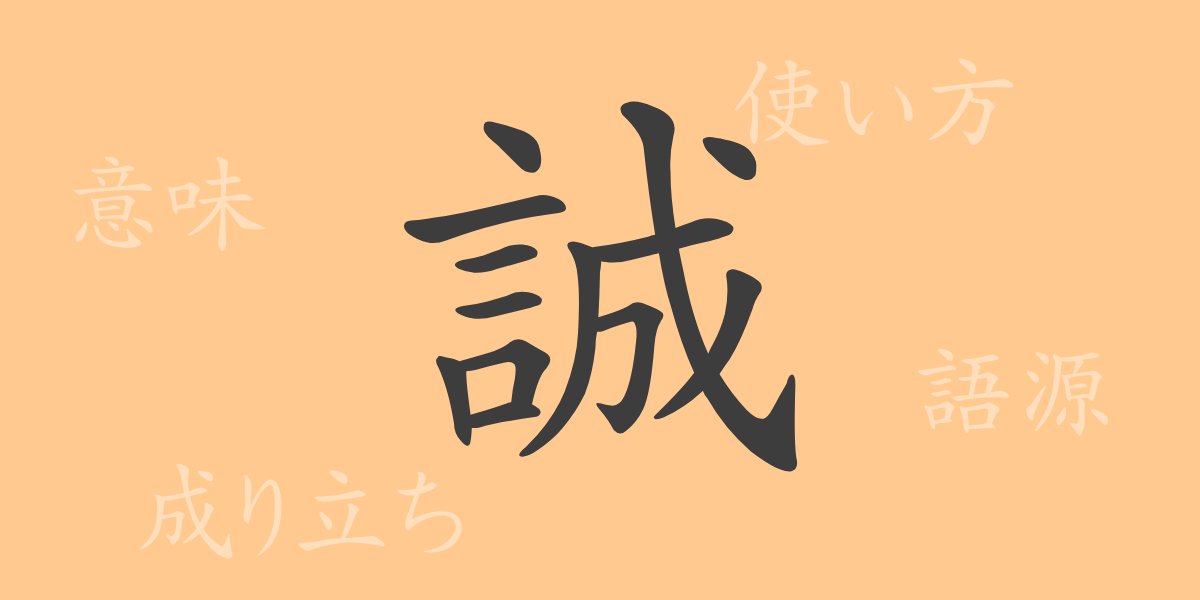Words reflect the soul, and ‘誠’ (セイ) embodies a value deeply cherished by the Japanese. This article explores the profound meanings and history behind the kanji ‘誠’, examining how we can integrate this principle into our lives today and carry forward our traditions into the future.
Origins of 誠
The character ‘誠’ originates from ancient Chinese oracle bone script. It combines ‘言’ (word) and ‘成’ (accomplish), symbolizing the act of accomplishing things through words. This evolved to represent truthfulness and has since been emblematic of sincerity.
Meaning and Usage of 誠
‘誠’ signifies a pure and truthful heart, free from deceit. In Japanese culture, sincerity is highly valued in relationships, both personal and professional. Commonly used in phrases like ‘誠意を示す’ (show sincerity) and ‘誠に遺憾です’ (truly regrettable), it expresses genuine emotions and attitudes.
Readings, Stroke Count, and Radical of 誠
The kanji ‘誠’ is widely recognized and taught through educational systems in Japan.
- Readings: On’yomi ‘セイ’; Kun’yomi ‘まこと’
- Stroke Count: 13 strokes
- Radical: 言 (word)
Phrases, Idioms, and Proverbs Using 誠
There are numerous idioms and proverbs that include ‘誠’, reflecting the importance of sincerity in Japanese language and culture:
- 誠心誠意 (せいしんせいい): With all one’s heart; sincerely.
- 誠意を見せる: To demonstrate one’s sincerity.
- 信誠 (しんせい): Deep faith or belief.
Conclusion on 誠
The kanji ‘誠’ carries more than just its literal meaning—it’s imbued with the weight of cultural significance, representing honesty and integrity that are fundamental to Japanese virtues. In today’s society, embracing the spirit of ‘誠’ in our interactions builds a foundation of trust and respect, essential for a harmonious community.

























